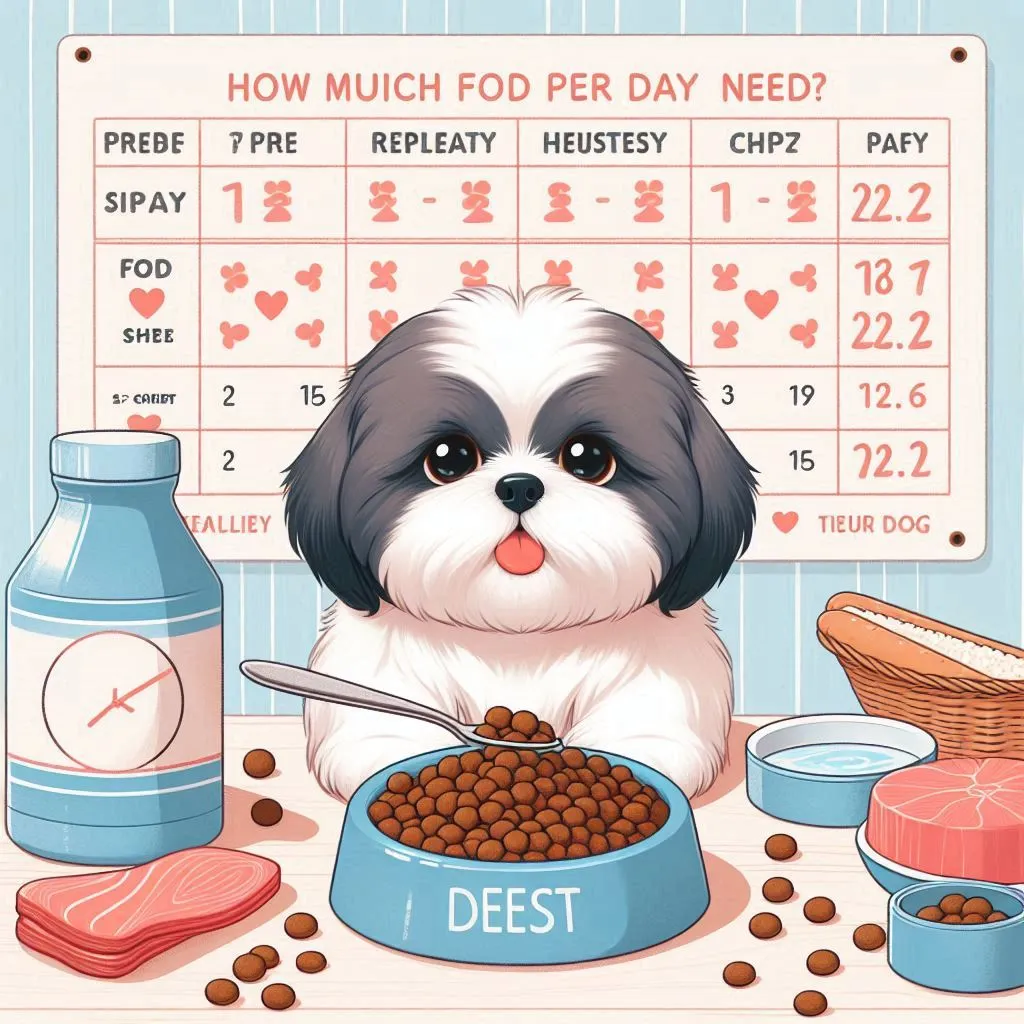Top 10 Dog Foods for Allergies: Finding the Best Option for Your Pup
Top 10 Dog Foods for Allergies: Finding the Best Option for Your PupIs your furry friend constantly scratching, sneezing, or dealing with upset tummies? If so, they might be among the many dogs suffering from food allergies. Just like us humans, our canine companions can have sensitivities to certain ingredients that can leave them feeling less than their best. But don’t fret! The good news is that with a little research and the right guidance, you can find the perfect dog food tailored to their unique needs. In this blog post, we’ll dive into the top 10 dog foods specifically designed for pups with allergies.
From limited ingredient diets to hypoallergenic formulas, we’ve got you covered in ensuring your beloved pet gets not just a meal—but a delicious and safe experience at mealtime! Let’s get started on helping your four-legged friend feel happy and healthy again!
Introduction to dog allergies and the importance of finding the right food
Is your furry friend constantly itching, scratching, or experiencing digestive issues? If so, they might be dealing with food allergies. Just like humans, dogs can have sensitivities to certain ingredients in their diet that lead to discomfort and health problems. Finding the right dog food for allergies is crucial to improving your pup’s quality of life.
But where do you start? With countless brands and formulas on the market, it can feel overwhelming trying to determine what are the best dog foods for dogs with allergies. Understanding your dog’s specific triggers is a key step in this process.
In this guide, we’ll delve into everything you need to know about selecting allergy-friendly foods for your canine companion. From top-rated options available today to helpful tips on making dietary transitions smoother—let’s ensure your pup gets back on track toward a happy and healthy life!
Understanding your dog’s allergies and triggers
Understanding your dog’s allergies starts with observation. Pay attention to any patterns in their behavior or health concerns. Common signs include itching, skin irritations, gastrointestinal upset, and ear infections.
Allergies can stem from various sources. Food ingredients like grains, dairy, and certain meats are frequent culprits. Environmental triggers may include pollen, dust mites, or mold.
Keep a diary of your dog’s symptoms alongside their food intake. This record helps identify potential allergens over time.
Remember that dogs can also develop sensitivities as they age. Regularly reassessing their diet is crucial for managing allergies effectively.
If you suspect food allergies, consider an elimination diet under veterinary guidance to pinpoint specific triggers without compromising your pup’s health.

Factors to consider when choosing a dog food for allergies
When selecting dog food for allergies, it’s crucial to read ingredient labels carefully. Look for single-source proteins, as these can reduce the risk of allergic reactions.
Consider the carbohydrate sources too. Some dogs react poorly to grains like wheat or corn. Grain-free options often use peas or sweet potatoes instead.
Another important factor is the presence of fillers and artificial additives. These can exacerbate allergy symptoms in sensitive pups. Opt for brands that prioritize natural ingredients without unnecessary binders or preservatives.
Keep an eye on your dog’s specific allergens as well. Each pup is unique; what works for one may not work for another.
Lastly, think about your dog’s age and health status when choosing a formula tailored to their needs. Nutritional requirements change over time, so adjust accordingly to support overall well-being.
Top 10 dog foods for allergies and their ingredients
If your beloved furry friend suffers from allergies, finding the right dog food can be a daunting task. With so many options on the market, it can feel overwhelming to choose one that will not only provide proper nutrition but also address your dog’s specific allergies.
To help you in your search, we have compiled a list of the top 10 dog foods for allergies and their key ingredients. These options have been carefully selected based on their ingredients, nutritional value, and good track record for addressing allergies in dogs.
- Taste of the Wild Grain-Free Dry Dog Food – This highly rated option is free from common allergens such as grains, corn, and soy. It contains real roasted meat as the first ingredient and is rich in antioxidants and probiotics to support overall health.
- Purina Pro Plan Focus Sensitive Skin & Stomach Formula – Formulated specifically for dogs with skin and stomach sensitivities, this food includes salmon as its main protein source and contains prebiotic fibers to aid digestion.
- Wellness Simple Limited Ingredient Diet – Made with fewer ingredients to reduce the risk of allergic reactions, this food features single-source protein options like duck or lamb and excludes wheat, gluten, corn, dairy, eggs, and artificial additives.
- Hill’s Science Diet Sensitive Stomach & Skin Recipe – Designed for dogs with digestive issues or skin irritations due to food sensitivities, this formula includes easily digestible proteins like chicken meal and excludes filler ingredients like wheat or soy.
- Natural Balance L.I.D Limited Ingredient Diets Dry Dog Food – Another limited ingredient option featuring novel protein sources such as bison or venison that are less likely to cause allergic reactions in dogs.
- Royal Canin Hydrolyzed Protein Adult HP Dry Dog Food – Recommended by veterinarians for managing severe food allergies or intolerances in adult dogs through its hydrolyzed soy protein formula which breaks down proteins into smaller molecules for easier digestion.
- Iams Proactive Health Sensitive Skin & Stomach Dog Food – A budget-friendly option that still provides essential nutrients while eliminating common allergens like wheat, corn, and soy from its formula.
- Nature’s Variety Instinct Limited Ingredient Diet Grain-Free Dry Dog Food – This grain-free kibble features a single-source protein along with easy-to-digest carbohydrates and excludes common allergens like dairy, eggs, or beef.
- Blue Buffalo Basics Limited Ingredient Grain-Free Formula – Formulated with limited ingredients to reduce the risk of allergic reactions, this food includes a turkey or salmon as its main protein source and excludes grains and gluten.
- Diamond Naturals Skin & Coat All Life Stages Dog Salmon & Potato Formula – Made with premium real salmon as its primary protein source and featuring omega fatty acids for healthy skin and coat, this option is free from grains, corn, wheat, fillers or artificial preservatives.
Remember to consult with your veterinarian before making any changes to your dog’s diet and always carefully read the ingredient list when purchasing
Comparing different brands and types of allergy-friendly dog foods
When it comes to choosing allergy-friendly dog foods, variety abounds. Different brands offer unique formulations tailored for pups with sensitivities. Grain-free options are popular, as many dogs react poorly to grains like wheat or corn.
Limited ingredient diets can be beneficial too. These formulas usually contain fewer components, making it easier to identify potential allergens. Brands like Blue Buffalo and Wellness often excel in this category.
Some pet owners prefer novel protein sources such as venison or duck instead of the traditional chicken or beef. This approach helps bypass common allergens while introducing new flavors.
Additionally, consider whether you want dry kibble, wet food, or a combination of both. Each type has its benefits; dry kibble promotes dental health while wet food tends to be more palatable for picky eaters.
Researching each brand’s reputation is crucial too—look for transparency in ingredient sourcing and clear labeling practices that ensure quality control.

Tips for transitioning your dog to a new allergy-friendly diet
Transitioning your dog to a new allergy-friendly diet requires patience and care. Start by gradually mixing the new food with their current kibble. A common approach is the 70/30 rule: 70% old food and 30% new for the first few days.
Watch for any signs of discomfort or adverse reactions during this period. If everything goes smoothly, slowly increase the ratio of new food over about a week.
Consistency is key. Stick to regular feeding times to help your pup adjust better. Keep track of their stool quality as it can indicate how well they’re adapting.
Incorporating tasty toppers like bone broth can make meals more appealing without triggering allergies. Always maintain plenty of fresh water available for hydration throughout this transition phase.
Alternative options for homemade or raw diets
For many pet owners, exploring homemade or raw diets for dogs with allergies can be an appealing alternative. These options allow for complete control over ingredients and help identify potential allergens more easily.
When preparing a homemade diet, focus on high-quality proteins like chicken, turkey, or fish. Pair these with safe vegetables such as sweet potatoes and carrots to provide essential vitamins. Always ensure balanced nutrition by incorporating necessary supplements.
Raw diets often emphasize meats, bones, and organs that mimic a dog’s ancestral eating habits. It’s crucial to research the appropriate balance of nutrients when considering this route.
Consulting a veterinary nutritionist can guide you in creating recipes tailored specifically for your dog’s needs. This approach not only helps manage allergies but also fosters a deeper bond between you and your pup through personalized meal preparation.
Importance of consulting with your veterinarian before making dietary changes
Consulting with your veterinarian is crucial when considering dietary changes for your dog. They have the expertise to identify specific allergies and potential triggers unique to your pup.
Veterinarians can recommend the best course of action based on a thorough examination. This ensures that any new food will not exacerbate existing health issues or introduce new ones.
Additionally, they can help interpret allergy tests and suggest appropriate hypoallergenic diets tailored to your dog’s needs. Each dog is different; what works for one may not work for another.
Your vet’s guidance also helps you navigate labels and ingredients effectively, avoiding hidden allergens in commercial foods. Partnering with them fosters a holistic approach to managing your dog’s health through diet. Always prioritize this professional insight before making significant changes to their nutrition routine.
Real life success stories and testimonials from pet owners
Many pet owners have shared heartwarming stories about their dogs thriving after switching to allergy-friendly diets. One owner, Sarah, noticed a remarkable change in her Golden Retriever, Max. After months of scratching and discomfort, she found a limited ingredient formula that worked wonders for him. His fur became shinier, and his energy levels soared.
Another story comes from Tom, whose Beagle had severe food sensitivities. After consulting with his vet and trying several brands, he settled on a grain-free option packed with novel proteins. The transformation was incredible; Bella no longer suffered from upset stomachs or itchy skin.
These testimonials highlight the importance of persistence in finding the right food for pets with allergies. Each dog is unique, and what works for one may not work for another. The joy of seeing your pup happy and healthy makes the effort worthwhile.
Conclusion: finding the best option for your pup’s
When it comes to addressing food allergies in dogs, finding the best option tailored to your pup’s unique needs is essential. Every dog is different; what works for one may not work for another. It’s crucial to take into account their specific triggers and preferences when selecting a diet.
By carefully considering factors like ingredient lists, potential allergens, and nutritional balance, you can help ensure that your furry friend remains both healthy and happy. The top 10 dog foods discussed earlier provide a solid starting point. Always keep an eye on how your dog reacts as you introduce new options.
Maintaining open communication with your veterinarian can also support this transition. They can help monitor any changes or improvements in health as well as guide you through dietary adjustments.
A happy dog often reflects a thoughtful approach to nutrition—so make every meal count! Remember that incorporating alternative diets or homemade meals might be beneficial too if done correctly. Ultimately, regular check-ins with yourself about how your dog’s diet affects their overall well-being are vital.
Your journey will evolve alongside your pup’s health needs and lifestyle choices. By staying informed and persistent, you’ll pave the way toward optimal nutrition for them—a step towards many joyful moments together ahead!















Post Comment